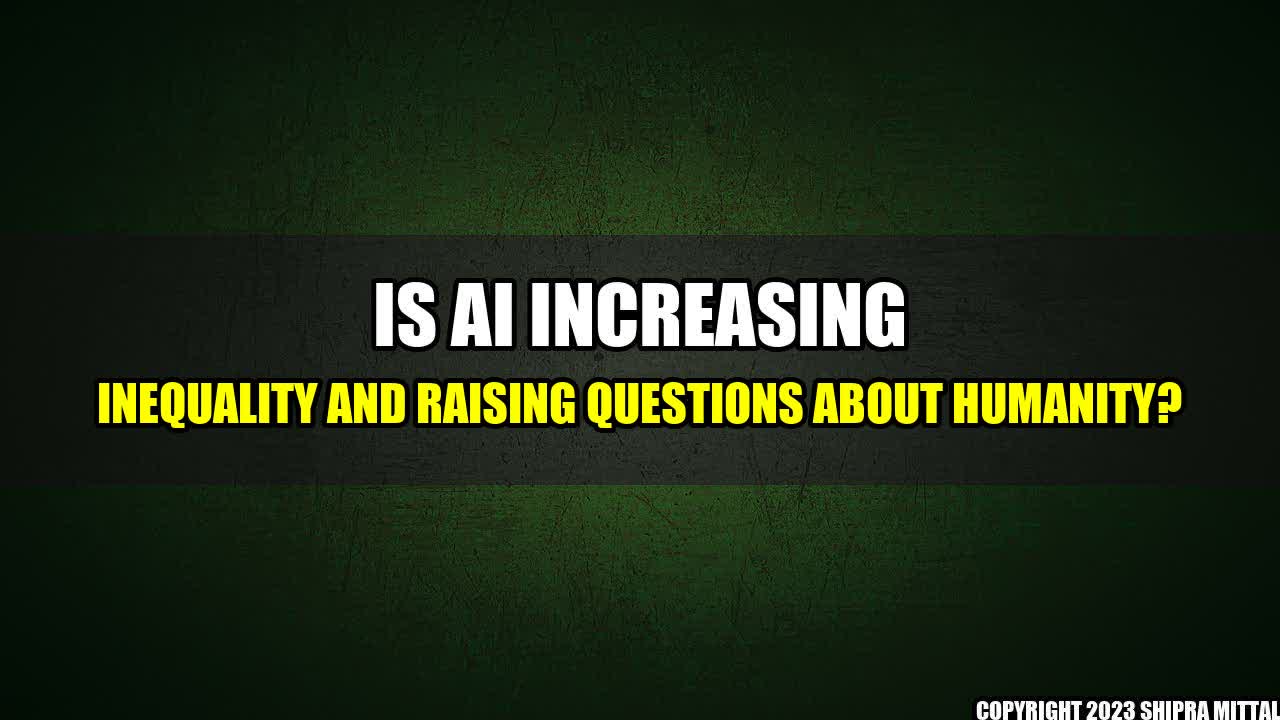Is AI increasing inequality and raising questions about humanity?

Written by Akash Mittal

Written by Akash Mittal
It was a bright summer morning when John, a young man from a small town, walked into a job interview in the city. The company was looking for a new digital marketing specialist, and John had studied hard to get his degree in marketing. He felt confident, but also a bit nervous, as he had heard the competition was fierce.
As he entered the room, he saw a group of people gathered around a computer screen. They were looking at a report generated by an AI software that analyzed social media data. The report showed that the company's current digital marketing strategy was not efficient enough to reach their target audience. John was amazed by the accuracy of the report, but also worried. If companies could rely on AI to do their job, what was the point of hiring human marketing specialists like himself?
John's story is not unique. AI is already transforming the job market, and many experts predict that it will increase inequality by automating low-skilled jobs and leaving many people out of work. A report by McKinsey estimates that up to 800 million jobs could be lost to automation by 2030.
Moreover, AI raises tough questions about humanity. If machines can learn and make decisions like humans, does that mean they can be considered conscious beings? How will humans interact with AI in the future? Will we be able to control it?
Concrete examples of how AI is already affecting people's lives can be found in many areas. In healthcare, AI can assist doctors in diagnosing diseases, but also raise concerns about privacy and data security. In finance, AI can optimize investment strategies, but also increase market volatility by generating and trading assets faster than humans. In education, AI can personalize learning, but also replace teachers and create a digital divide among students.
As AI keeps evolving and becoming more ubiquitous, it is important to address these issues and find ways to ensure that AI benefits everyone, not just a privileged few. Governments, companies, and individuals must work together to create policies and systems that promote inclusivity, transparency, and accountability. We must also keep in mind that AI is a tool, not a replacement for human judgment and empathy.
In conclusion, AI is a double-edged sword that can both enhance and challenge our society. We must embrace its potential while also being aware of its limitations and risks. The future of AI depends on how we shape it, and we have a responsibility to do so in a way that reflects our values and aspirations.
Akash Mittal Tech Article
Share on Twitter Share on LinkedIn